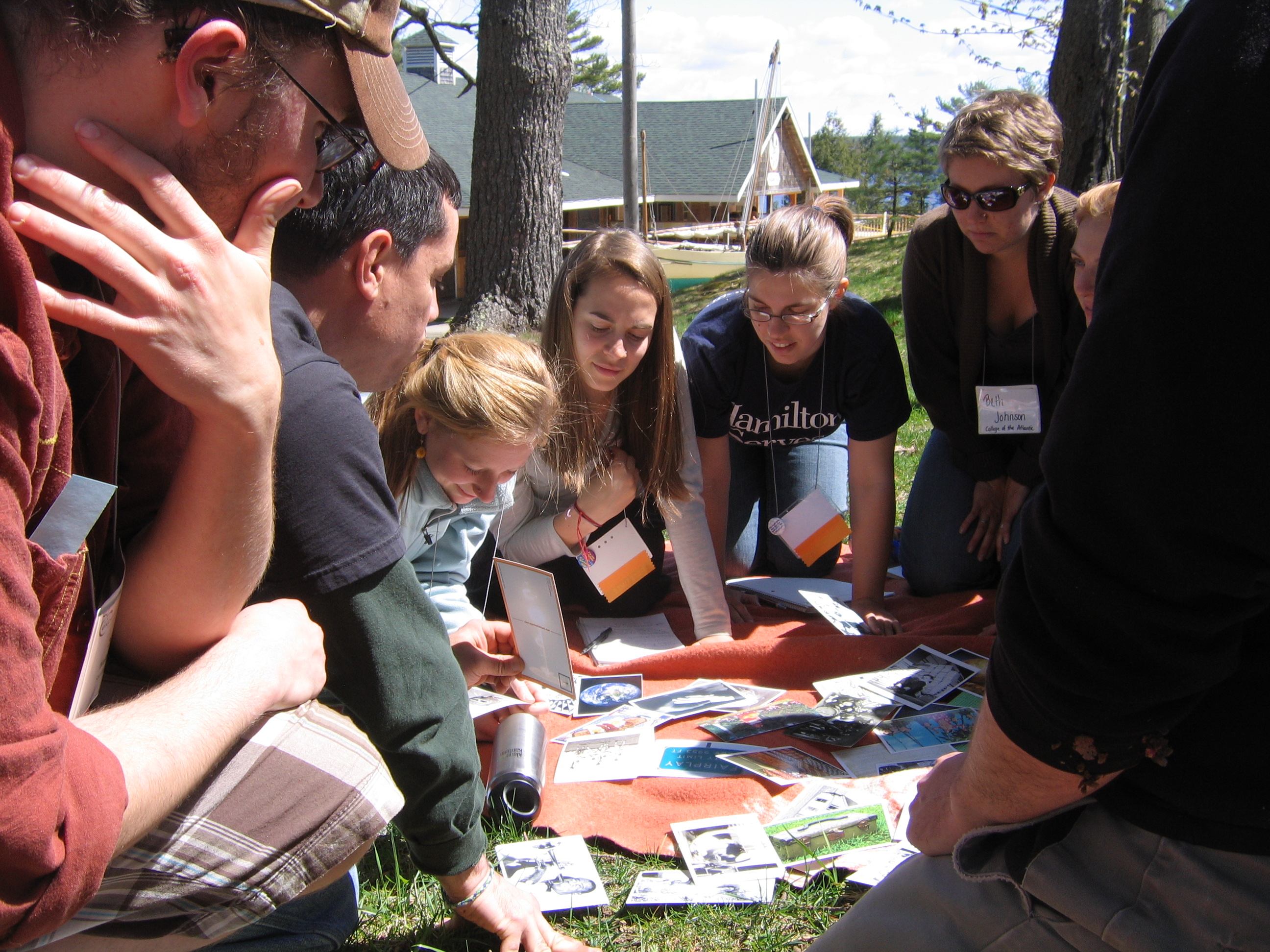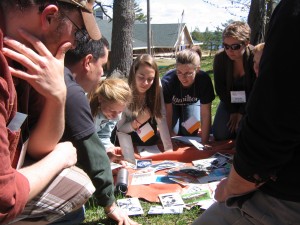
Feb 19, 2011 Reflective Practice Versus Debriefing
 Promoting new ways to engage groups in reflective practice has been a personal passion and focus of my work as an educator. From the beginning of my career as an education and clinician in therapeutic and educational settings I noticed that both facilitators and participants often struggle with engaging in reflection. In books, articles and workshops over the years I have tried to help both participants and facilitators view reflection as a dynamic and engaging activity rather than a chore through the use of metaphoric tools and active techniques. More and more I have realized that not only our approach, but the language we use around reflective practice impacts how we, and our clients or students view it.
Promoting new ways to engage groups in reflective practice has been a personal passion and focus of my work as an educator. From the beginning of my career as an education and clinician in therapeutic and educational settings I noticed that both facilitators and participants often struggle with engaging in reflection. In books, articles and workshops over the years I have tried to help both participants and facilitators view reflection as a dynamic and engaging activity rather than a chore through the use of metaphoric tools and active techniques. More and more I have realized that not only our approach, but the language we use around reflective practice impacts how we, and our clients or students view it.
The term debriefing has never resonated with me. Instead I prefer the terms processing or reflection to describe this fundamental aspect of experiential learning (the process of intentionally creating opportunities for learners to reflect upon experiences and transfer learning to real life and future learning).
I remember talking to my friend and colleague Dave Lockett about this subject many years ago. Dave, who was formerly a Navy Seal, shared that he didn’t think “debriefing” fit our field at all as it implies a top down military report out to a commanding officer rather than an educational experience.
While reflecting on this topic last summer when writing an article entitled “Processing in the Middle of the Experience” I looked up debriefing in several dictionaries. The definitions reaffirmed Dave’s observation. This term originated in the military and describes a top down questioning or report out of a pilot or soldier after a mission, followed by instruction from commanders to the individual about what they can share and what is confidential.
The Merriam-Webster Collegiate Dictionary Definition of Debrief:
Transitive verb:
To interrogate (as a pilot) usually upon return (as from a mission) in order to obtain useful information
The American Heritage Dictionary Definition of Debrief:
de·briefed, de·brief·ing, de·briefs
1. To question to obtain knowledge or intelligence gathered especially on a military mission.
2. To instruct (a government agent, for example) not to reveal classified or secret information after employment has ceased.
Another reason I avoid the term debriefing is that it seems too leader centered and is very limiting in scope as it implies a one-time report out to a commander. I like to think of processing or reflection as something that starts from the beginning of a program and is woven throughout to create stronger connections between learning experiences and real-life outcomes. Ideally the participant takes more and more ownership and direction in this process as the facilitator/leader/teacher steps more into the background. I use reflective practice to describe this ongoing participant-centered approach to help learners take responsibility for the educational process and its application it to their life.
See my blog post on “Processing in the Middle of the Experience” for more ideas/thoughts on this subject. http://www.experientialtools.com/2010/06/04/processing-in-the-middle-of-the-experience/
The American Heritage® Dictionary of the English Language, Fourth Edition copyright ©2000 by Houghton Mifflin Company. Updated in 2009. Published by Houghton Mifflin Company. All rights reserved.



michael cardus
Posted at 07:57h, 20 FebruaryWe are all contained within our language. Our thought, ideas and processes can NEVER exceed our personal vocabulary. This ties back to the “You don’t know, what you don’t know.” Because if you knew it then you would not, not know it.
Working with people and being clear and distinct in the definitions and words used creates an open environment for processing.
Tweets that mention Reflective Practice Versus Debriefing | Experiential Tools -- Topsy.com
Posted at 11:32h, 21 February[…] This post was mentioned on Twitter by Reflective Learning, Jennifer Stanchfield. Jennifer Stanchfield said: Reflective Practice Vs. Debriefing. Today's Blog Post: http://www.experientialtools.com/2011/02/19/reflective-practice-versus-debriefing/ […]